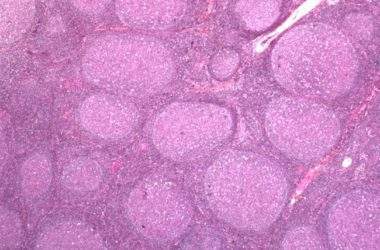Lagundi, whose scientific name is vitex negundo, is a large shrub that is native to the Philippines. Elsewhere on the planet, it is known as cut-leaf chaste tree, negundo chaste tree, horseshoe vitex, Indian privet and dangla. Some also call it five-leaved chaste tree due to its characteristic five-pointed leaves, making them look like the fingers of a hand.
The plant grows in the swamps of the Philippines, and it also thrives in other regions where the temperature is warm. It is possible for the plant to grow up to 5 meters in height, possessing only a single woody stem.
For centuries now, lagundi has been used as an herbal medicine for treating and preventing a wide variety of diseases. In fact, it is one of the 10 medicinal plants endorsed by the Philippine Department of Health (DOH). Practically all parts of this plant may be used for medicinal purposes, such as the leaves, lavender flowers, seeds and root.
Commonly, the healing properties of lagundi can be harnessed by having the leaves boiled in water, allowing for the production of an herbal tea or a concoction. Both fresh and dried leaves of the plant may be used for this purpose. Other parts of the plant may be used for decoction and employed for various purposes.
Lagundi is generally used for the treatment of infection of the upper respiratory tract such as colds and flu. What makes the plant work very well against these maladies is the so-called chrysoplenol D, a substance scientifically proven to possess superb antihistaminic properties. It is also capable of relaxing the muscles, easing inflammation and killing parasites.
Now that you are acquainted with some lagundi facts, let us now take a quick look at its many benefits:
Lagundi Relieves an Assortment of Digestive Issues
Traditionally, lagundi tea is taken for the treatment of dyspepsia and indigestion due to its ability to relax the GI tract. The herbal preparation is also ideal for individuals who are having a bout of diarrhea and cholera.
It is Taken to Eliminate Intestinal Worms
The presence of intestinal worms most especially in children can result in various problems such as malnutrition. The intake of lagundi tea is an effective remedy against parasitic worms, thanks to the plant’s amazing antihelmintic properties.
The Herb May be Used for Treating Hemorrhoids
One of the many capabilities of this plant native to the Philippines is the reduction of inflammation. It’s for this reason why lagundi is also used by traditional healers for dealing with hemorrhoids.
Lagundi is Very Good Against Rheumatism
Since it has anti-inflammatory properties, those with rheumatism may benefit from the intake of lagundi tea to attain relief from painful and swollen joints. A bath prepared with lagundi leaves can work wonders as well for rheumatism.
The Plant Helps Relieve Various Aches and Pain
Headaches and migraine can be naturally healed with the consumption of lagundi tea, thanks to its remarkable analgesic properties. The plant is also good for toothaches and muscle aches.
Consuming It Helps Protect the Liver
Your liver, one of the many organs of elimination, is prone to diseases due to the nature of its work. Traditionally, lagundi is used for the treatment of various liver diseases due to its impressive hepatoprotective capabilities.
It is Also Used to Help Strengthen the Heart
Many also take lagundi tea as a heart tonic. According to herbal experts, boiling the flowers allows for the production of tea known to be very good at strengthening the heart, thus making it function so much better.
Lagundi is Effective Against Various Skin Diseases
When used topically, the well-known plant can help provide relief from various skin problems. Some of them include boils and chicken pox. Application in the form of poultice may also be done for minor skin burns.
It is Good for Different Respiratory Problems
Lagundi is popularly used for treating a wide variety of conditions that concern the respiratory tract. It is very good for cough, cold and flu. Traditional healers also recommend the plant for problems like asthma and chronic bronchitis.












